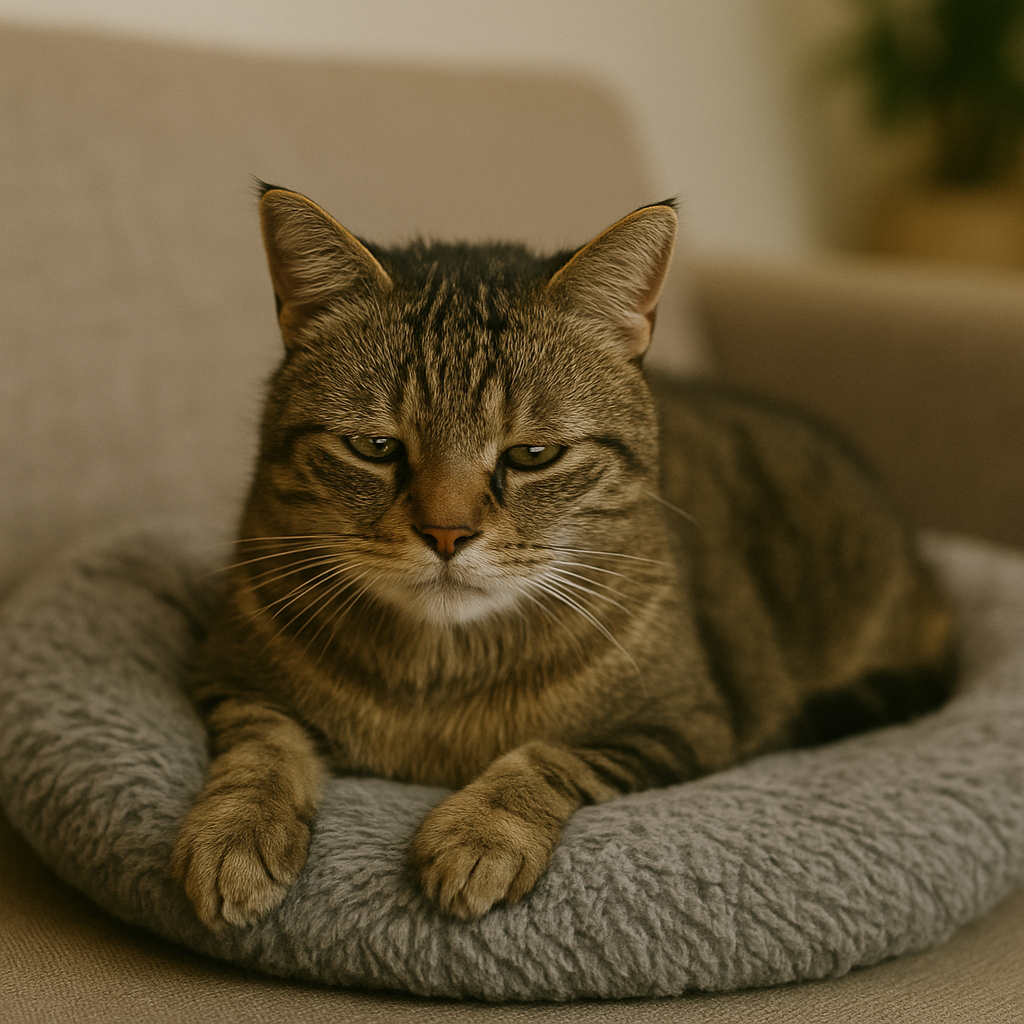Vet-Approved Cat Sleep Fixes 2025: Spot & Soothe Rest Issues 🐾

In this article
Vet-Approved Cat Sleep Fixes 2025: Spot & Soothe Rest Issues 🐾
By Dr. Duncan Houston BVSc
Cats need restful, high-quality sleep to stay healthy — and when they’re not sleeping well, their entire body and mood suffer. The problem? Cats hide discomfort extremely well, and most sleep issues go unnoticed. 🛏️
This article explores the subtle signs of disrupted sleep in cats, what causes it, and vet-approved solutions to support better feline rest and wellbeing.
⏰ How Much Sleep Should a Cat Get?
Healthy adult cats sleep between 12–16 hours a day, often in polyphasic bursts — short naps throughout a 24-hour cycle[1]. Kittens and seniors may sleep even more — up to 20 hours.
⚠️ Cats who feel unsafe, uncomfortable, or unwell may spend lots of time lying down but aren’t achieving restful, deep sleep (REM cycles).
🚩 Signs Your Cat Isn’t Sleeping Well
1. Restlessness
Frequent repositioning, short naps, or “fake” sleep may signal pain, stress, or discomfort.
2. Avoiding Their Bed
Cats avoiding their designated bed may find it unstable, too hot/cold, or not aligned with their natural preferences (e.g. open vs. enclosed)[2].
3. Nighttime Activity
Excessive vocalization or zoomies at night can point to unmet enrichment needs or sleep dysregulation — particularly in indoor cats[3].
4. Behavioral Shifts
Increased hiding, irritability, or aggression may be pain-related, and poor sleep is often a secondary symptom[4].
❌ Common Causes of Poor Cat Sleep
- Uncomfortable bedding (too soft or wobbly)
- Bright lights or noise pollution
- Joint discomfort or undiagnosed medical conditions
- Stress, anxiety, or territory insecurity
- Lack of daytime activity or structure
✅ How to Improve Cat Sleep (Backed by Vets)
1. Choose the Right Bed
Matching your cat’s sleep style improves sleep time and quality. For example:
- 🌀 Curler? → Uluru Felt Cave
- 🛋️ Sprawler? → XL Felt Pad
- 🔁 Shape-shifter? → 3-in-1 Cube Cave
Wool-blend felt provides structured support and temperature regulation for deep, uninterrupted sleep[5].
2. Improve Bed Location
- Choose quiet, low-traffic areas
- Use natural light to support circadian rhythms
- Avoid drafts and appliance vibrations
3. Add Comfort & Warmth
- Layer a heating pad (vet-approved) under senior beds
- Use enclosed beds for cats needing security
- Add their own scent (blankets or toys) to the bed
4. Enrich Their Routine
- Interactive toys and wand play before bed can help expend energy[6]
- Maintain consistent feeding and light schedules
💬 From Our Vet: Dr. Duncan Houston, BVSc
"Poor sleep is one of the most underdiagnosed causes of behavior issues in cats. A stable bed and a calming space can restore REM cycles and improve your cat’s physical and emotional health."
🛒 Purrz Vet-Recommended Beds
- 🛏️ 3-in-1 Cube Cave
- 🧺 Uluru Felt Cave
- ☀️ XL Felt Pad




